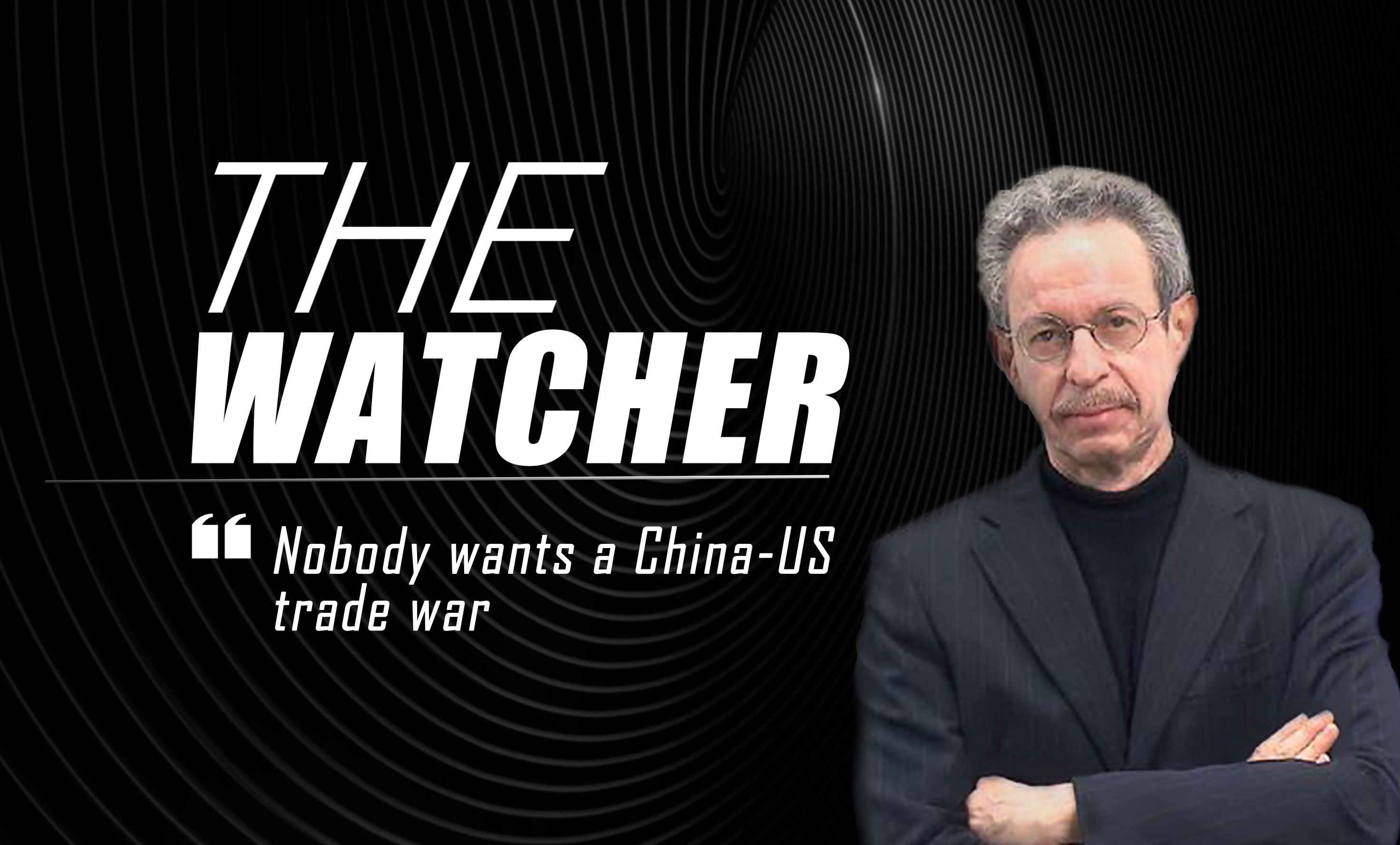
Opinions
10:11, 25-Mar-2018
The Watcher: Nobody wants a China-US trade war
By Robert L. Kuhn

The US is imposing punitive tariffs on 50 to 60 billion dollars in annual imports from China, potentially starting a trade war between China and the US. The US said it is moving to counter what it calls China’s “economic aggression”.
China’s Ministry of Commerce said, “China does not want to fight a trade war, but it is absolutely not afraid of a trade war.”
Global trade should benefit everyone; a trade war benefits no one. Most American economists and business executives reject sweeping tariffs targeting China, disagreeing vehemently with President Trump.
Simply put, said the US Chamber of Commerce President Thomas Donahue, “tariffs are damaging taxes on American consumers” who would have to pay higher prices.
Tariffs could lead to a destructive trade war that would harm US economic growth and job creation. Moreover, tariffs prop up old industries and impede the industrial transformation the US needs to create a new economy.
At the same time, these same American experts and leaders broadly condemn “the negative economic impact of China’s industrial policies and unfair trade practices”.
Frankly, on getting “tough with China”, I have not seen such consensus on both ends of the American political spectrum.
A storm seems to be brewing and the seas of China-US relations do not look calm.
China argues that China’s balance of payment surplus is the product of the high savings rate of Chinese consumers and the high consumption rate of American consumers. Chinese workers earn less than American workers - and some of the trade imbalances come from American companies operating in China.
The US argues that China’s markets are unfair, not open to US products the way US markets are open to Chinese products; that Chinese government support of Chinese enterprises, with below-market rate loans and preferential government procurements, constitute prohibited subsidies; and that China has for decades pursued a strategy of unfairly acquiring US intellectual property.
China will have to respond strongly, but hopefully respond in a way that signals a ratcheting down, not up, of tensions.
Tariffs are a mistake; but the underlying problem is real. Tariffs won’t work; but other measures must.
Premier Li Keqiang listed further steps of opening-up that China is going to take, covering services, manufacturing and products, and he encouraged US businesses to seize these opportunities.
The premier also stressed that a large trade deficit is not what China is after and he called for the US to relax restrictions on high-tech exports.
My point is this: China and the US are at different stages of development and China-US trade is complicated, the two economies are inextricably interconnected, and simplistic answers are misguided. Policymakers on both sides should understand the other side’s positions.
(Dr. Robert Lawrence Kuhn is a CGTN anchor, a public intellectual, international corporate strategist and investment banker.)

SITEMAP
Copyright © 2018 CGTN. Beijing ICP prepared NO.16065310-3
Copyright © 2018 CGTN. Beijing ICP prepared NO.16065310-3